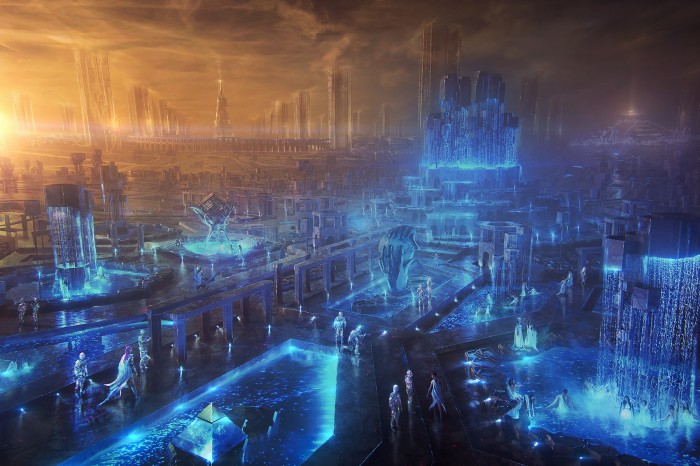- Comment
- Reblog
-
Subscribe
Subscribed
Already have a WordPress.com account? Log in now.
 Dazzling. That’s the best word to describe this introduction to an extensive dystopian sci-fi saga. The first book in a series of five, ‘Jubilee’ sets the scene and themes in a complex, carefully crafted future history. It’s a world of contradictions and contrasts, saturated in vibrant technicolour throughout. The author uses a glittering palette to paint brilliantly vivid word pictures of almost-immortal telepathic transhumans, imprisoned within the earth by their own technology which sustains them underground but – in the form of a catastrophically virulent viral bioweapon – has rendered the surface uninhabitable.
Dazzling. That’s the best word to describe this introduction to an extensive dystopian sci-fi saga. The first book in a series of five, ‘Jubilee’ sets the scene and themes in a complex, carefully crafted future history. It’s a world of contradictions and contrasts, saturated in vibrant technicolour throughout. The author uses a glittering palette to paint brilliantly vivid word pictures of almost-immortal telepathic transhumans, imprisoned within the earth by their own technology which sustains them underground but – in the form of a catastrophically virulent viral bioweapon – has rendered the surface uninhabitable. ‘Jubilee’ is a relatively short book. It contains a complete story arc, but it is only the tip of the overall tale. If you find yourself intrigued by the characters (I especially like the violet-haired huntress, Lady Isabelle Lutetia; deadly, cruel, but complicated) and the unfolding multiple scenarios, then you’ll want to hop straight on to the next in the series, The Gambit With Perfection. The saga is perfect for readers who want an extended, immersive, inventive experience. If you’re looking for short-term immediate satisfaction, then you’re less likely to enjoy ‘Jubilee’. It asks many questions and starts many plots threads – most of them ‘to be continued’ as this episode draws to a close.
‘Jubilee’ is a relatively short book. It contains a complete story arc, but it is only the tip of the overall tale. If you find yourself intrigued by the characters (I especially like the violet-haired huntress, Lady Isabelle Lutetia; deadly, cruel, but complicated) and the unfolding multiple scenarios, then you’ll want to hop straight on to the next in the series, The Gambit With Perfection. The saga is perfect for readers who want an extended, immersive, inventive experience. If you’re looking for short-term immediate satisfaction, then you’re less likely to enjoy ‘Jubilee’. It asks many questions and starts many plots threads – most of them ‘to be continued’ as this episode draws to a close.